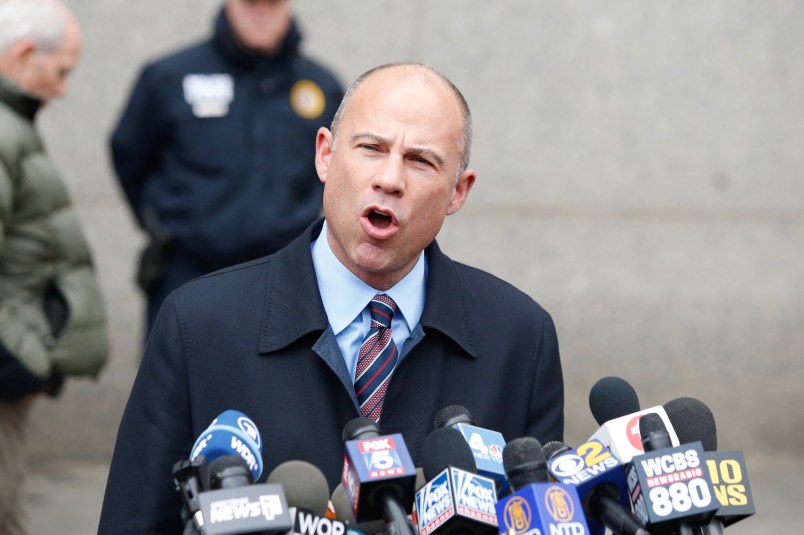An IRS analyst has been charged with illegally disclosing confidential financial reports that shed light on former Trump fixer Michael Cohen’s lucrative consulting contracts with global corporations, CNN first reported Thursday based on a newly unsealed criminal complaint.
According to the complaint, IRS analyst John Fry used his work computer to download several “suspicious activity reports,” or highly sensitive documents that financial institutions use to flag potentially criminal behavior.
Fry allegedly then called lawyer Michael Avenatti, who was the first to use SARs to reveal Cohen’s attempts to profit off of his connection to President Donald Trump via profitable consulting contracts. Months earlier, before the alleged SAR leak in question, The Wall Street Journal reported on SARs that tracked the hush money payments Cohen made to Stormy Daniels on his boss’ behalf.
The Executive Summary from our first Preliminary Report on Findings may be accessed via the link below. Mr. Trump and Mr. Cohen have a lot of explaining to do.https://t.co/179WvIkRlD
— Michael Avenatti (@MichaelAvenatti) May 8, 2018
The investigation, according to the complaint, began when Cohen’s suspicious activity reports were cited in articles by The Washington Post and The New Yorker, the complaint said. The complaint, signed by a special agent from the IRS’ government watchdog, the Treasury Inspector General for Tax Administration, was sealed on Feb. 4. Another Treasury Department staffer was arrested in October for leaking SARs related to Paul Manafort.
At one point, The New Yorker revealed that its unnamed source for the SARs detailing Cohen’s banking data claimed that there were two missing SARs. “I have never seen something pulled off the system,” the magazine’s source said.
The New Yorker reporter who printed that quote, Ronan Farrow, is referred to as Reporter-1 in the complaint, which notes that he and Fry spoke several times over the phone and via WhatsApp. “Beautifully written, as I suspected it would be,” Fry allegedly messaged Farrow on WhatsApp in response to the article.
The complaint explains why the reports were missing: “I learned that [the two missing SARs] were given ‘restricted access’ on the FinCEN System in October and August 2017, respectively, because they were related to a sensitive open investigation,” Special Agent Linda Cieslak wrote.
That investigation — which led to Cohen pleading guilty to eight counts, and then to another count — is now well-known.
According to the complaint, Fry “agreed to waive his rights” during an interview with special agents investigating the leaks and made “a verbal and written statement” admitting to them.
“FRY confessed to verbally providing SAR information to Avenatti,” the complaint says. “FRY also admitted that he sent Avenatti a screenshot of the narrative. FRY stated that Reporter-1 contacted him to verify the information supplied to Reporter-1 by Avenatti.”



